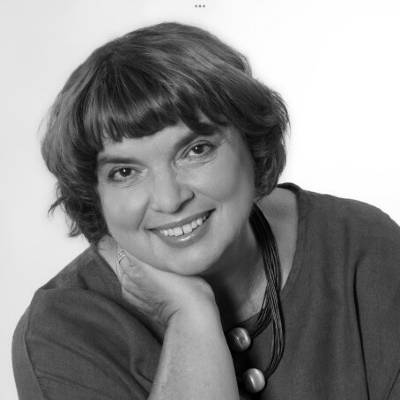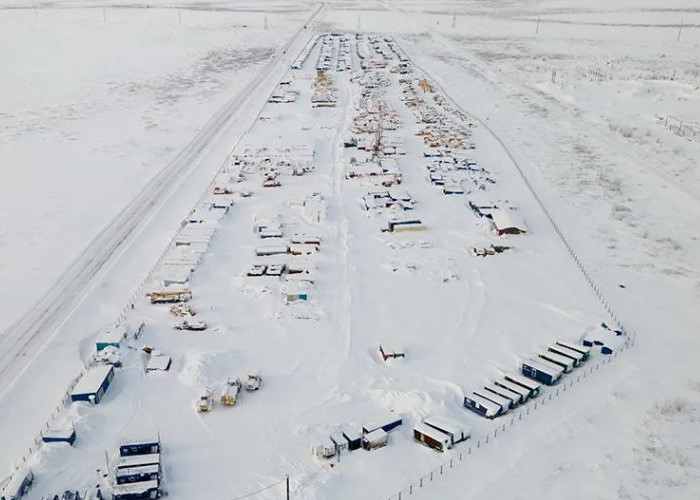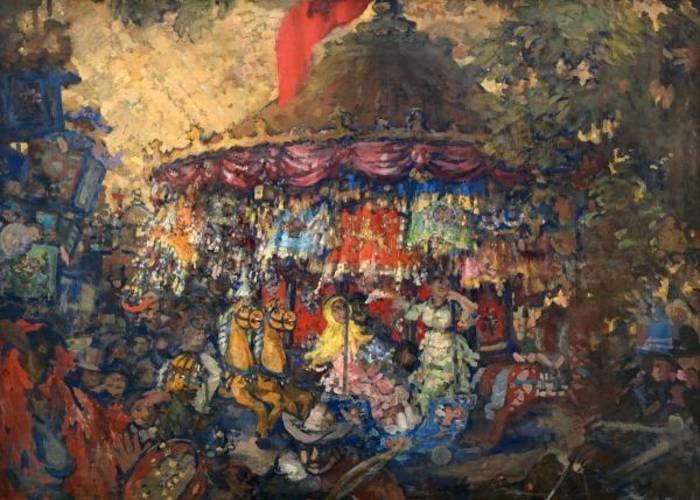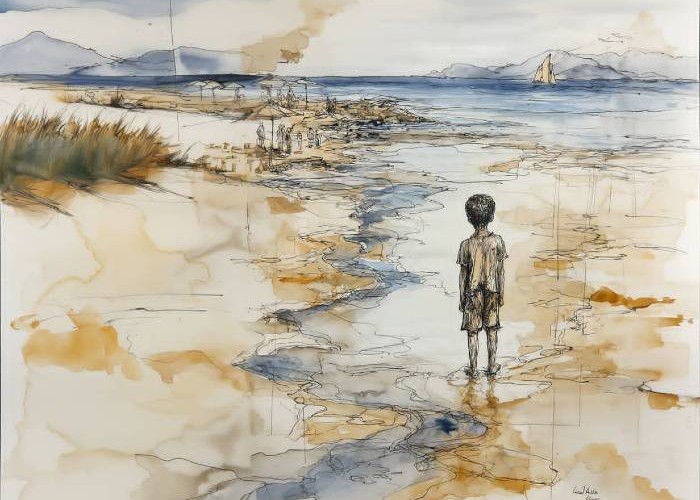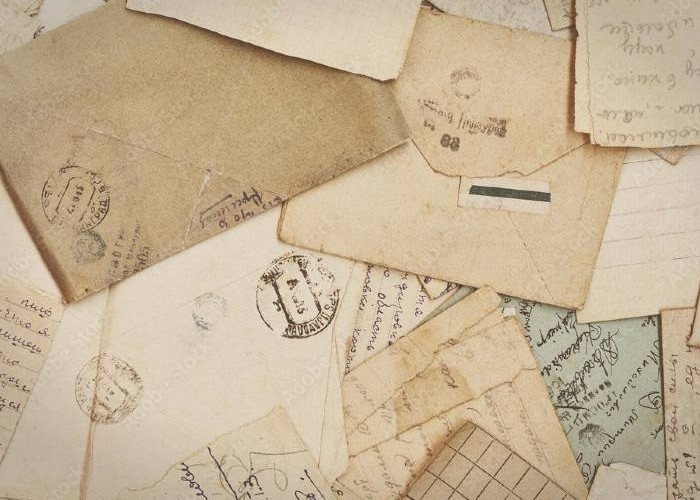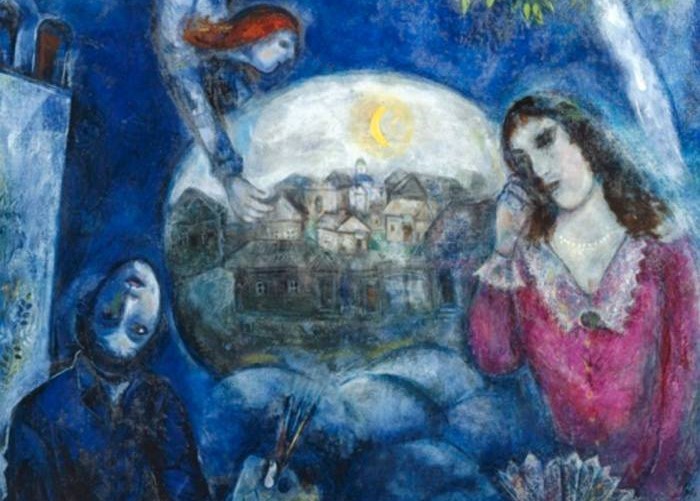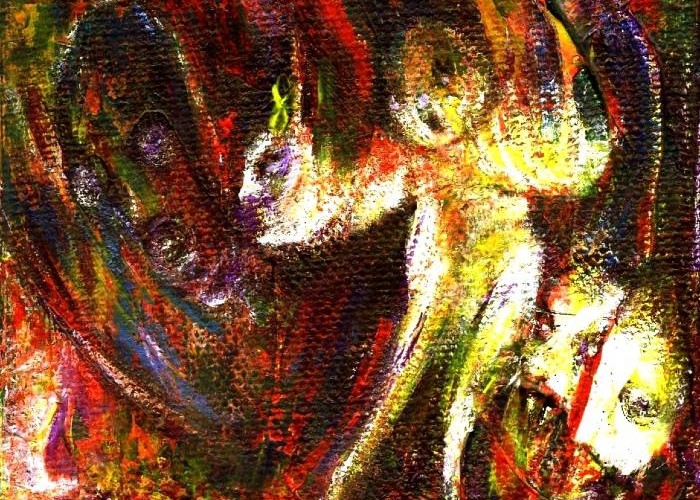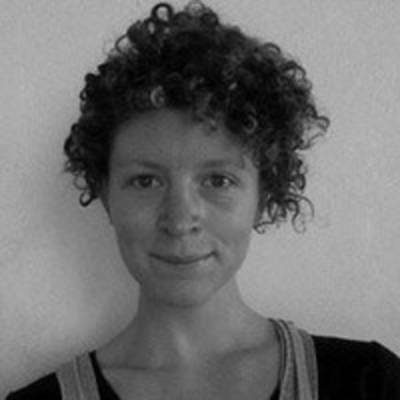EXCERPT 1
PART 2, CHAPTER 1
The wind blew clusters of snow along the paths, sending them swirling and chasing around Novodevichy cemetery like hundreds of small animals. Ada was not frightened by this; on the contrary, she found it calming. As if here, in the cemetery, everything that had changed so irreversibly everywhere else remained as it had always been.
What the gusts of March wind had to do with permanence, Ada couldn’t have explained. It would, in any case, have been horribly crass to begin talking about permanence in a graveyard.
Lots of people had gathered for the funeral. That was hardly a surprise, given everything that she knew about Tasha. They had never been particularly close friends and had not seen each other often. By some mysterious twist of fate, however, Tasha had always come into her life just as it reached a significant moment or turning point. The last such time had not been even just a turning point; Ada’s whole life had depended on it.
No doubt Tasha had played the same or a similar role in other people’s lives. That’s why Ada was not surprised that so many people had come to say their farewells. Then again, perhaps that’s simply what happens when you spend your whole life in the city where your parents, grandparents, and, very likely, great-grandparents lived before you, all of them well-known people. In those circumstances, human connections form—in such quantities that, whether long and durable or short and fleeting, they extend through not only your own life but the entire city, Moscow in all its enormity and power.
Now the pathways of the Novodevichy cemetery had also become part of this web.
They had come to the cemetery after the service, which took place in the university church, St. Tatiana’s. Tasha had been religious; Ada had once been surprised to learn that she observed even the long Russian Lenten fast. It seemed strange, given her wicked wit, her abruptness, and her unconcealed pragmatism. But Ada had always considered the religious side of Tasha’s paradoxical nature to be sincere, if somewhat ostentatious.
Tasha considered German church architecture, like everything German, to be a model of a more rational way of life. If she was in Cologne for Christmas, she always visited all twelve Romanesque churches, studying the tabernacles displayed for the holiday at each one. But she only ever went to Orthodox churches to pray. She said that in Catholic churches she didn’t feel what she needed to for prayer. Ada didn’t think that prayer should depend on anything external, let alone the building; but she had grown up in a family where faith rarely took the form of ritual and in which it was not considered proper even to speak of it. Tasha, on the other hand, would describe how her grandmother had found her faith in a Russian church in the catacombs; how members of the congregation had been persecuted as dissidents; and how ever since then everything connected with religion had been sacrosanct in their family. It would have been strange for Ada to judge any of this.
The church, with its gleaming gold décor and flickering candles, was stifling and crowded; Ada was the only person to put on a mask, though the pandemic was not yet over. She flinched at every one of the continual coughs around her – catching Covid was the last thing she needed now! – and was happy soon to find herself back in the open air, in the March snowstorm, which engulfed both the church and the walls of the Kremlin opposite.
In the bus that took them from the church to the churchyard, Ada remembered that Stalin was also buried in March, on a similarly murky day, with clouds hanging just as low over the Kremlin. She had seen it on a newsreel that had been filmed by the American diplomat. Strange that his funeral had come to her mind. Or perhaps it wasn’t strange: the unchanging nature of life in Moscow had become so glaring for her that she saw evidence of it even where it may not have been.
It was only in the cemetery that she felt able to approach the coffin. Once she and Tasha had travelled to Peredelkino, and in Pasternak’s house, looking at his death mask, Ada was struck by the expression recorded on the dead man’s face – one of profound thoughts and even more profound peace. Tasha said at the time that it was just the right expression for a dead person to wear as he entered the kingdom of heaven. But her face was exactly as it had been when she was alive, very focused, if now also wary and somehow unfamiliar. Ada was taken aback by this unfamiliarity at first, before attributing it to the paper headband that had been placed on her forehead, no doubt required according to Orthodox practice.
When the fresh burial mound had been completely covered in wreaths and flowers, Tasha’s sister said, “Please join us for Natasha’s wake. The buses will take you there.”
Ada hadn’t planned to go to the wake. But suddenly she imagined going back to the cramped emptiness of her apartment in Podsosensky street, imagined turning on the computer, and, angered by the workarounds that were now needed to do so, opening the news… Just the thought of it made her feel so despairing that even a wake seemed like a more agreeable option. At least she wouldn’t have to spend another evening alone, torturing herself with the news; and there would be lots of people around, none of whom knew her well enough to begin saying the kind of unbearable, impossible, monstrous things that her son said to her day after day. That is, which he used to say, when he was still answering her calls.
Walking towards the bus, she pulled up the message she had sent Fedya yesterday on her phone. He hadn’t read it yet, and there was no answer.
Out of the window of the bus, Ada saw Yan getting into his car. He had been at the service and at the cemetery, but she hadn’t approached him. What would have been the point? To hear him say again what he’d already said in the days just after her arrival? If her son’s words caused her physical pain, his only irritated her. Irritation was such a meagre feeling in comparison with everything else, but she didn’t want to inflict even meagre misery on herself. She knew how to protect herself from that – had learned long ago, after what had happened with Dorothy, who she had allowed to get too far under her skin.
Ada remembered one occasion from that year when Tasha had been at the Cologne Institute of Slavic Studies on her grant. They had been sitting one evening in the kitchen in Nippes, drinking the Kolsch that Tasha loved so much; Yan had not yet come back from work, and there was a side of lamb in the oven for dinner. For some reason Ada had remembered the scene that Dorothy had caused, in that very kitchen, under that same lamp, and she had told Tasha about it. After listening to the whole story with her usual lively interest in everyday concerns, Tasha had given her verdict: “You don’t need to pay any attention to people who try to manipulate you anymore.”
“Why?” Ada asked, surprised.
“You drew the lucky ticket,” Tasha answered, surprised in turn.
“Which ticket?” Ada didn’t understand what she meant.
“Yan, for god’s sake!” she exclaimed. “You can ignore everyone and everything now. Absolutely everything. I mean, you have no charm whatsoever. You don’t mind me saying that, do you?” she checked. Ada didn’t mind. “What I mean is, you don’t have any of that feminine sweetness. I don’t either, by the way. But unlike me, you can forget about all that. If he loves you as you are, does it matter if you’re charming? You can live without a thought for other people.”
Ada had no intention of living without a thought for other people, but Tasha was observant and honest in a way that was in fact charming, despite her view of herself. So perhaps there was some truth in what she said. She had certainly always said what she thought. Her first words about Yan had been:
“Who’s that Prince of Wales coming towards us? That guy over there carrying two trays?”
It had been in the university cafeteria. Yan was indeed walking through the room, holding a tray in each hand with lunch for himself and for Ada. She had laughed at these words, which came from the person she happened to be sitting next to – not a pretty woman, with large, very expressive features – and said:
“That’s my boyfriend. He doesn’t look anything like the Prince of Wales.”
“Yes, he’s much better looking,” Tasha answered without hesitation. “But his essence is pure Prince of Wales.”
And that’s how they met. Exactly twenty years ago to the day.
CHAPTER 2
The wake was held in a restaurant in the main building of the Tchaikovsky Concert Hall. Ada hadn’t known about this restaurant; she only knew the café, where she often went after concerts. The café sold pastries with fresh wild strawberries. It was thanks to these pastries that she had come to truly understand the meaning of the phrase “eat yourself silly.” There had been a time when she would regularly buy them for herself and for little Fedya, though Yan had given up eating sweet things by that point.
It turned out there was also a restaurant that served exquisite Georgian food. As they went in, an old married couple just behind Ada were chatting about this wonderful food and comparing it with the food at some other restaurants. The serene enthusiasm with which they discussed pkhali and satsivi struck her as so strange and out of place that she felt like leaving straight away. But Tasha’s sister came up and said, “Thank you for coming, Ada. Tasha told me about you. She would have lived a long and fruitful life if not for that damned cancer. Let us remember her in our prayers.”
It was impossible to leave straight after these words.
The hall was quite large, but there were lots of people; almost everyone who had been at the cemetery had come. Ada went to a table at the far end, not wanting to end up sitting next to Yan, who had sat close to the door, apparently not intending to stay for long.
She was joined at her table by the same old couple who had been discussing the wonders of Georgian cooking on the way in. After the first toast in honour of Tasha, they continued to talk about the same topic, not loudly, but with the same rapture as before.
Glancing at Ada, the woman appeared to understand something from her stony face, or so it seemed.
“Tasha didn’t like cooking much, but she loved getting people together,” she said, as though explaining her interest in restaurants. “When we came here, she often ordered everything for the table. She had a Georgian husband at one point, did you know? She even went to Tbilisi and meant to live there with him; but, of course, she soon came back. To nobody’s surprise – I mean, moving from Moscow to Georgia, that would really be too much… Not least for someone like Tasha, the family she came from! Her grandfather travelled from Switzerland with Lenin in 1917, in the very same carriage. Inessa Armand was a friend of her grandmother. And you saw that her whole family is buried at Novodevichy. The crème de la crème, as the French say, you know?
“Yes,” Ada responded mechanically.
“Georgia would never have worked out, in other words! But she and Vakhtang parted as friends,” the woman added.
“Though he didn’t come to the funeral,” noted her husband, who was handsome in an old-fashioned way and wearing gold cufflinks in his shirt.
“It’s difficult at the moment,” Ada shrugged. “There’s no direct flight, and quite apart from that…”
“Well, indeed, quite apart from that,” he frowned. “None of them like the fact that we’ve stood up for ourselves.” Noticing Ada’s perplexed look, he explained, “The Georgians have always hated us, too.”
“And who else?” Ada sensed something like a flame beginning to flicker in her stomach. Not quite a flame, just its first spark. “Who else has always hated us?”
“Well, as we’ve recently learned, the Ukrainians.”
“And how have we learned that?”
“I mean, they’ve just attacked us,” the woman said.
“The Ukrainians have attacked us?”
“Who did you think?” She looked at Ada with confusion, then turned to her husband and explained. “This is Tasha’s friend. She’s German, she doesn’t understand how things are.”
“I’m English. But that’s not important.”
I should leave, thought Ada. I should leave immediately. Before it’s too late.
But even as she thought it, she knew it was already too late.
“It is rather important,” the husband drawled. “The Germans at least understood that they owed us something, didn’t stir things up, for the most part, at least. The Anglo-Saxons, on the other hand have always been waiting for their chance to pounce. Now they’ve got their war.”
“He’s not talking about you, of course,” his wife added quickly. “But the West does want to enslave us, generally speaking, you can’t argue that point.”
“A point can always be argued.”
Ada was suddenly overcome with a feeling of such complete numbness that she could barely move her tongue. That was for the best; it meant she could maintain the appearance of calm. Otherwise, she might have thrown the dish of colourful pkhali against the wall, or something still worse.
“You can’t deny that they’ve armed Ukraine to the teeth.” The husband put some aubergine rolls stuffed with walnuts onto his plate. “Just look at those Ukrainian soldiers, if we can call them that. I saw it on the internet – brand-new uniforms, machine guns, Stinger missiles! What, did it all just land in their laps? They’ve been preparing to attack us. If we hadn’t taken action, NATO would already be advancing on Moscow.”
“And how do you know all that?” Ada said with difficulty.
“Our intelligence services,” the husband answered sharply.
“Say that were the case. But if NATO really were advancing on Moscow,” Ada needed all her self-restraint to keep her breathing steady, “then nobody would contest your right to protect yourselves.”
“But it would already be too late!” cried the woman. “God helps him who helps himself, as they say.”
“You mean…” The flame had fanned itself fully now, it was raging inside her, and there were flashes in her eyes, blinding and burning her. “You mean you’re expecting God’s protection in return for bombing a maternity hospital in Mariupol? For killing a child just as it was being born, just because of a vague suspicion that NATO was planning to attack Moscow?”
“Oh, don’t get me started on that maternity hospital!” The woman’s voice raised to such a pitch that the people at the other end of the table stopped talking about their memories of going ice skating with Tasha at Alexandrovsky park. “It’s nothing but fake news!”
“I can send you eyewitness accounts, if you like. And videos.”
“You don’t need to send me anything! Why would I even watch it? You live in the modern world, don’t you get it?! Anybody can throw together a video about anything they like in five minutes or less. And those eyewitnesses of yours have been fed lines. Not just that, they’re all professional actors!”
“The CIA has specialists in zombification. You need to get up to speed on information hygiene,” the husband added in a patronizing tone. “You can’t believe every stupid thing the internet tells you to.”
Ada felt like she was suffocating. It wouldn’t have helped to take deep breaths, even if she still could; her suffocation was not physical.
“Ada, you really are saying some strange things.”
The face of the woman sitting diagonally opposite her and listening to the conversation was vaguely familiar to Ada. She thought they had met once in passing at Tasha’s apartment on Malaia Bronnaia street. But she couldn’t remember the name of this woman, who, blonde and without make-up, looked like Marina Vlady.
“What am I saying that’s strange?” Ada said, breathlessly.
“Well, would you personally start shooting at a maternity hospital? I’m sure the answer is no. So why do you think that Russians would be capable of it?”
Ada felt she was going insane. The mind of this woman, with all that it contained, all of which she held to be perfectly logical, opened out under Ada’s feet like an abyss.
Without waiting for an answer, the beautiful woman added, “And why have you been silent for the past eight years? While they’ve been killing Russians in Donbass? Children have died there, too, and not some mythic children but real children, with names and surnames. Haven’t you heard of the Avenue of Angels? Google it, if not.”
“This is worse even than Dorothy,” swam across her mind.
Dorothy’s name had an unexpected effect on Ada, acting like a bucket of cold water.
“I know all about the Avenue of Angels.” She stood up abruptly but awkwardly, so that her chair fell on the floor with a clatter as she pushed it back. At this noise, all conversation in the room stopped completely, and everyone turned to look at her. “But I also know that nobody was murdering children nine years ago, not in Donbass, not in Crimea, not anywhere else in Ukraine. And nobody had any intention of doing so. All the angels were alive. Until the moment that your army invaded. Invaded another country. In contempt of all international norms and basic human rights.”
Perhaps she should have said something more. She probably should at least have apologised to Tasha’s sister. But Ada felt that if she said a single word more or heard a single word in response, she would lose her mind right there and then. It was as though she had stepped onto marshy ground that would hold her for only a minute more before swallowing her whole.
“What dramatics!” She heard the mocking voice of the blond woman behind her. “Of course, when you don’t have any arguments, that’s all that’s left.”
“So that’s what they call listening to both sides.” This was said by the man with the aubergine rolls on his plate. “All Russians are murderers, according to them. You’d think the West had no problems of its own.”
The outrage that took hold of Ada at these words was so intense that she paused, almost turned around; but her rational mind, the part that hadn’t yet been consumed by rage, forbade her from doing so.
Ripping her coat from the stand by the door, she ran out of the room.
EXCERPT 2
PART 2, CHAPTER 11
“We are all the sons of our own deeds. But where is that ‘we’ that would include me? There isn’t one.”
She understood this with frightening clarity as she stood here on the shoreline, so deserted that if the waves had crashed only a little harder and carried Kseniya off into the ocean, nobody would ever have known.
To get this thought out of her mind, she turned to the thing that always helped her, rationality. It was a particular kind of rationality, though, one closely tied to feelings, in fact founded upon them. Feelings stirred her memory, calling events to its surface in their exact temporal and geographical sequence.
She had first encountered the idea that each of us is the son of our own deeds twelve years ago. Twelve years and two months. She and Sergei had been walking through Algiers. Kseniya had looked up at the Kasbah that rose over the old town. Sergei had noticed and said that Cervantes spent seven years in that fortress as a Turkish prisoner, and that he had tried four times to escape without success. We are all the son our own deeds, he added; perhaps Cervantes understood that precisely here, though more likely than not he had always known it, deep inside. At the time, Kseniya had thought only that she was incapable of doing anything that would merit any sort of attention. She hadn’t thought about her own loneliness at all, not because of the busy crowds of the Algerian capital so much as because Sergei was walking beside her, and loneliness did not exist when she was beside him, just as crowds did not.
Now, too, on this road skirting the Amur Bay, it wasn’t the emptiness of the shore and the ocean that made her feel lonely.
The rain had stopped, but the wind threw the cold spray of the roaring waves in Kseniya’s face. She couldn’t have moved further away from them because the road was hemmed in by water on one side and a sheer wall of rock on the other. She had already walked about five kilometres along this road. Soon she ought to see the guard towers of the Vladivostok transit camp on the high cliffs ahead. At least, Galina had said that the camp was six kilometres from the city, up near Kaluzina Point.
Kseniya had left the city under the cover of darkness, and just as a strange feature of her body allowed her to feel the passing of time quite precisely, so, too, she could sense exactly how much distance she had covered.
That she felt not only time but also space, Kseniya had first realized here, in the Far East. She had felt it on her journey, two weeks of travelling through endless fields, forests and tundra overgrown with crooked trees on an overcrowded train that had stood for long periods at refuelling points. She had felt it, too, in the town of Nikolo-Ussuriisk, where she had spent another two weeks. And in Komsomolsk-on-Amur, where she had changed to a river boat. And especially in Pivan, where she alighted onto a rural pier and immediately saw the long barracks surrounded by barbed wire on the shore, and those strange contraptions that she’d later learned were rock breakers, and the hills that towered with such frightening indifference above it all.
Ksenia recalled that hellhole Pivan with a shudder; it was despair itself. The two months she had spent in the village had, by local standards, been downright benign. That September on the shore of the Amur Bay had been warmer than any in living memory, and when Kseniya first went through the hills to the camp, she could have taken off not only her coat but also her knitted jumper and her headscarf. She would have taken them off, too, if not for the countless flying creatures that covered any bit of exposed skin. And they said that by autumn the midges had partly been replaced by mosquitos and flies; what it must have been like for Sergei here during the summer, she couldn’t bring herself to think.
When she had first set out from Pivan, Kseniya thought she was going to the camp. It was only when she had descended from the first hill into the valley, then climbed up the second and found herself looking down into the next valley from above that she understood why the old woman from whom she was renting a room in a hut by the pier had said not “to the camp” but “to the camps.” It was not a quirk of the local dialect but a precise description of what she now saw stretching out towards the horizon.
It was impossible to grasp how many camps there were; the area they covered seemed endless. A quarry, a sawmill, the rock breakers that Kseniya had already seen among the other structures, a tunnel into the cliff and barracks, endless barracks, filled the space as far as the eye could see; and in this space, like black ants, swarmed people, all identical, just like ants. Looking down from the hill at all this endlessness, Kseniya realized with horror that finding Sergei among the thousands of prisoners would be impossible.
Even now, by the ocean, in the biting sea wind, the memory made her tremble. She quickly reminded herself that her situation was now a lot more hopeful, and the trembling that her fear had provoked went away. She was indifferent to the physical shivering brought on by the wind.
Kseniya tried not to think about what would happen if Galina’s deal turned out not to stand.
Galina was the first person she had met in Vladivostok. In fact, Kseniya had only by a miracle not been killed by the first two people she had met; but since they hadn’t actually introduced themselves, you could hardly really call that meeting.
As she had come out onto the square in front of the station, Kseniya had thought briefly that the Vladivostok station looked a lot like Moscow’s Yaroslavl station; it was in the same neo-Russian style. But she was so tired from her journey and it was so long since she had last eaten that these architectural details could not hold her interest. All she wanted was to find a room or even just a corner with a bed as quickly as possible, to buy something edible and to eat, sitting on this bed, before falling straight into it to sleep.
But finding all of this in an unfamiliar city would not be quick or easy. Worse still, Vladivostok was a port city, and she could sense all the danger that this entailed. When they had got out of Crimea on the last military ship, Kseniya and her father had lived for a few years in Bizerte, in Tunisia; it was there that she had learned to recognise such danger. Hundreds, thousands of people emerge into port cities every day, many of whom have been dealt a poor hand by life; that’s how her father had explained what he called the natural danger of ports.
However, the train station was in the centre of Vladivostok, not the port, so Kseniya dismissed her fears. There was, of course, no point looking for a hotel; they only took people on official business, and even then they were picky. A prisoner’s wife was in no position to count on a hotel. Nothing good could come of reminding them of her existence.
The Brownian motion of the station forecourt was driven in no small part by Chinese people. There were many of them in the Far East, lending its life and landscape a distinct, if barely perceptible, Chinese air. Looking out of the window while she was still on the train, Kseniya had recalled Severianin’s poem about the dragon moulded out of red clay on the wall of a traditional fanza house, the bright blue sky, and the velvet fields and dramatic mountains… His poems generally struck her as too mannered, but this one was pure in its simplicity, like a serene sigh.
Kseniya was not sure that these Chinese people understood any of the languages she knew, so she sought out a Russian hawker in the crowd on the square. Squat, with a simple face and an indifferent gaze, getting on in years – all this led her to hope that he would not take any sexual interest in her. Her own plain looks, accentuated by her fatigue from the journey, strengthened this hope.
“A room?” the hawker said, with the same indifference as was in his gaze. “Long term?”
“A few days, for the time being, then we’ll see,” she answered.
“We’ll see!” he snorted. “So you want a servant as well as a bed.”
“It doesn’t even need to have a bed,” she hurried to reassure him. “I can manage without.”
“Fine.” He put down his tray, on which were arrayed a number of strangely shaped pies. “Come with me, I’ll take you there.”
“I can make my own way,” she said. “Just tell me the way.”
But the hawker had set off silently across the square, deftly squeezing through the crowd, and Kseniya thought it best to follow him.
Vladivostok was different to other cities she had been to, whether coastal cities like Yalta, Bizerte or Algiers, cities in central Russia like Moscow or Klin, or French and German cities. It descended on terraces from the hills above, but despite the planning that this clearly implied seemed disorderly to Kseniya. In any case, she couldn’t understand where the hawker had taken her, though they had not walked a long way and, as far as she could tell, were still in the centre of the city.
The place looked like slums of the worst type, with streets that were narrow and dirty. The buildings, which were largely made of red brick, appeared mismatched due to the open walkways that wrapped around each one; they weren’t walkways, in fact, but long balconies. The balconies all joined together because the houses either stood right up against one another or were joined by bridges. Courtyards, probably thoroughfares, could be seen through every gate. It occurred to Kseniya that all of this only looked chaotic and was in fact part of a complex system: a place where, once you had ducked into it, it would be possible to disappear for good.
The hawker turned into one of the courtyards. Kseniya followed him without thinking. Once inside, however, she felt so uneasy that she stopped and looked back. To her horror, the gate they had come through from the street, and which was therefore her only way back to it, was nowhere to be seen. She couldn’t understand how this could have happened in the space of literally a few steps. Perhaps it was just the gathering dusk.
“I’m not going any further,” said Kseniya.
Her guide turned around and she saw that the indifferent expression had left his face.
“You don’t need to,” he smirked. “Chuck me your trunk and go wherever you want. Wherever you can.”
The fact that he had noticed she had a trunk and not an ordinary bag frightened Kseniya as much as his “wherever you can.” Sergei had bought this trunk in Algiers before they had left on the steamship for Marseilles. It was made of carpeting material with an oriental design that was stretched over a metal carcass, making it light, roomy, and durable. When Domna had been helping her pack for the journey, she had sewn canvas around it to make it look less exotic, saying that otherwise she would be robbed out of sheer curiosity. But even the canvas, it seemed, was no help…
“I won’t,” she answered, looking into the flat, freckled face of the hawker. “I can’t.”
She really couldn’t give up the trunk, and not because she valued it, although she did, as she valued everything that reminded her of Sergei. The main reason, though, was that the trunk held the sheepskin overcoat that Domna by some miracle had managed to get hold of second hand in Moscow. Winter was around the corner and would not survive it in the light jacket she had on. If she lost the overcoat, she would also lose the ability to go outside, making her stay in Vladivostok pointless.
“Yeah, you can,” her leader snarled. “Hurry up and hand it over.”
He reached out his hand for the trunk. Kseniya stumbled back and threw herself towards what she thought was the place where the gate they had come through should be. She might have been right but she didn’t make it to the gate before another person appeared in front of her. Unlike the hawker, this person was not stout but tall. He materialized out of nowhere, literally stepped out of the wall. Dusk had now fallen so far that she could not make out the features of his face. Not that she needed to see his face: she could feel the air he gave off, the air of not just a dangerous man but a violent thug.
“Hold it, sweetheart,” he said calmly. “Don’t try and run. Or I’ll have to hit you.”
It was the second time in her life that Kseniya had heard these words. She knew what followed them. Only she couldn’t count on anyone’s help this time around, not like before. True, the first time she hadn’t counted on anyone’s help, either. But help had come, whereas now…
Kseniya darted to the side, trying to go around the thug. But he also took an imperceptible step to the side, so that this burst of energy led only to her slamming against his chest, hard as a wall, and just as if it were really a wall, almost cracking her skull.
He hit her as soon as she stumbled back. Not properly, it seemed, just a push on the forehead with his palm. This was all that was needed, however; Kseniya fell on her back, and it was only thanks to the trunk, which happened to be behind her, that her head didn’t slam on the ground. She silently righted herself and grabbed the trunk with both hands. Clearly, she wasn’t going to get away. But she wouldn’t give up the overcoat either. Let them kill her.
Who knows whether the thug really did plan to kill her or not; but when he kicked her in the ribs once and then again, the pain took her breath away. Kseniya hoped to keep the pain inside because letting it out into the dark slums around her would have been too utterly pointless. She hoped in vain. She cried out, unable to hold it in. The blows followed one after another, striking her shoulders, her legs, then her ribs once again. Kseniya’s arms held on only tighter to the trunk, her fingers dug only tighter into the canvas.
“They’ll get me in the temple any minute and I’ll be done for,” she thought, barely conscious.
Fiery pulses flashed through her head, and her ears echoed with a piercing ring.
“Proper death grip you’ve got there!” Kseniya heard someone say through this torturous ringing. “Is it full of gold, or what?”
The question was followed by such a heavy blow to her ribs that she wouldn’t have been able to answer if she wanted to.
“Hurry up and finish her off,” the second voice said. “She’s clamped on tight. You’re not getting it off her alive.”
Kseniya understood from the indifferent tone that this was the hawker’s voice. So he was also a thug. Maybe everyone here is a thug, though what difference did it make now whether it was everyone or just these two.
How bitter to die alone! That was the last thing that Kseniya thought as she sank into the final darkness.
At the very same moment, she realised that the darkness wasn’t taking her. Through her pain, she heard a woman’s voice, so piercing that it could likely cut through stone and steel as well as the damp autumn air.
“Oi, scumbag, what are you doing?!” the woman shouted in Ukrainian. Her shout was piercing but not in the least bit afraid. “I’ll knock your bloody teeth out! Get out of here, you rag. Both of you! I’ll call Lin and the boys, set them on you!”
“Why Lin?” Kseniya’s head swirled with confusion, like water in a washbasin. “Lin’s in Moscow…”
There was a Chinese laundry on the ground floor of the building next to her house in Podsosensky street, and the cunning Lin was God and Tsar, or rather, Emperor of this laundry.
“Don’t try and scare me!” the thug answered. “Who asked you to come and stick your beak in?”
Now that he had stopped beating Kseniya, she could hear not only his words but also their tone quite clearly. He didn’t sound scared but he was certainly wary.
“I’ll crack your thuggish head in two!” the woman barked. “I don’t need Lin to help me do that, you’ll see!”
“Is this your sister then, Galina?” the hawker asked in a soothing tone. Turning to the thug, he added, “she’s been waiting for her sister to come from Ukraine.”
“Why didn’t you just say it was your sister?” His voice was now friendly as could be, though he was clearly putting her on. “No need to jump straight to cracking our heads. Go on and take your sister home, Gala.”
“Didn’t realise I needed your permission. Get lost yourself.”
Kseniya heard the sound of retreating footsteps, then silence. True, not complete silence; now that she was no longer being beaten, Kseniya could make out not the sounds so much as echoes of the life going on in the squat houses that surrounded the courtyard. They were restless sounds, and the life that generated them was probably restless too.
“Can you stand up?” Galina squatted down next to her. “Let me help you.”
“Thank you,” muttered Kseniya. “Give me just a minute.”
Breathing made her ribs hurt, and every word she said made her tremble. When she placed her hands on the ground to push herself to standing, pain shot through her body so intensely that she dropped back onto the trunk.
“What are you doing, you haven’t really clamped yourself onto that bag, have you?” Galina reached her hands under Kseniya’s armpits and started to lift her. “Those two only look like people. They’re worse than animals. They would have killed you.”
“Let them…” muttered Kseniya, standing up with difficulty.
“Let them!” Galina shook her head. “Giving up your life for some rags, what’s got into you?”
“I have an overcoat… there…my trunk…” she answered, frowning with pain at every word. “In the winter…outside… I can’t… without it. And Sergei…I won’t find.”
Although the thug hadn’t hit her on the head, it was pounding; she felt dizzy, and spoke disjointedly.
“And which Sergei is that you’re planning on looking for outside?” Galina laughed. Then immediately she guessed, and in a different tone asked, “Is this Sergei of yours an inmate?”
“Yes.”
“In the transit camp?”
“That’s what they said.”
“Who said?”
She had been told that Artynov, S.V. had been sent to Vladivostok for transit by the chief clerk in the office at the camp in Pivan. The office was on the central street of the village. The short, thin man had hustled Kseniya around the corner, and, when she had slipped him yet more money, on top of all that she had already handed over for information about her husband, he had added, smirking, that in Vladivostok they stuffed Zeks into steamship prisons like herrings and took them to Kolyma, to the Maldyak open-cast goldmine, and don’t nobody come back alive from there; she’d wasted her time traipsing all the way from Moscow to this end of nowhere, and she’d waste more if she went on to Vladivostok.
Before telling Galina this, she would need to explain how she had looked for Sergei in Nikolo-Ussuriisk, where he was supposed to have been sent to serve his time, according to the notice she received in Moscow, which for some reason had not specified the length of his sentence. In that rotten hole, Nikolo-Ussuriisk, where even free people, if they can be called that, die like flies. How she had finally managed to find out that he had for some reason been sent from Nikolo-Ussuriisk to the camp at Pivan. How there hadn’t been any tickets for the train to Komsomolsk, where it would have been possible to get to that camp. How everywhere she was met by a wall of noes, and everywhere these noes fell one after the other like dominos without revealing the yes, the single yes that she needed, behind them.
But saying all of this would have taken too long, so in answer to Galina’s question, Ksenia said, “The office clerk at his last camp.”
“Couldn’t have been lying?” Galina picked up the trunk from the ground. “I’m not going to steal it, I promise.”
“I don’t know if he was lying or not.” Forgetting herself, Kseniya sighed and cried out with pain before adding, “That’s what I’m trying to find out.”
“Are you straight off the train?” asked Galina.
“Yes. The guy who brought me here was selling stuff from a tray at the station. He promised to find me a room.”
“Oh, he’d find you one alright. A coffin, most likely. Then he’d try and nick the coffin, too.”
Galina carried the trunk to the door of a single-storey house.
“You don’t even know me,” Kseniya said to her back.
“Really?” She turned round and laughed. “It’s written all over your face. You’re an innocent. What’s your name?”
“Kseniya. Kostromina.”
“How old?”
“Twenty-nine.”
“Come on in, Kseniya. You have to at least wash your face or it’ll be either the nuthouse or the police for you.”
EXCERPT 3
PART 3, CHAPTER 6
So there Ada was, waiting for Katya’s visa to be ready, and every day that she remained in wartime Moscow was torture.
It wasn’t that she didn’t know how to keep herself busy. There were endless ways to do that in Moscow, as there had always been. But now all of these possibilities only bewildered her; the very thought of sitting in the theatre made her wince.
Fedya had asked her to collect a letter confirming which exams he had taken from the university, and she did as she he had asked. On her way home, she heard two women in the metro talking about one of their nephews, forty years old, who had been called in to the recruitment office to check his details and that was it, he never came home, though how they could conscript him when he had never even served, just did the usual military training at university, and that was twenty years ago, it’s not like they even taught them anything there – and then there’s his diabetes, and three kids at home…
“A week later he phones and says he’s in Ukraine, they’re waiting for their orders. He didn’t get any training, nothing. And what does he mean orders, to do what? He doesn’t know himself. His sister has cancer, she can hardly walk. They’ll let him come back, she keeps on asking, surely they’ll let him come back? But who’s going to let him come back? Finders keepers.”
That this was being said about a living person made Ada’s hair stand on end. The women got out at the next station but she almost missed her own, having opened the city news page on her phone to distract herself and came across an advert for a public lecture in a cultural centre in the old Arbat district.
“What is inner freedom? How can we stop reacting to circumstances? Come along to learn what the Roman philosophers Seneca, Epictetus and Marcus Aurelius had to say on the topic,” the advert read.
It was as though someone had storyboarded the whole thing, a crude and unsubtle sequence with a primitive, blunt message. Life no longer shied away from such cliches.
Two days later, Rita phoned.
“I don’t suppose you’re coming to Moscow anytime soon, are you?” she asked. “My friends are looking for someone to bring some documents from Paris. It’s pretty urgent. They’d take a month to arrive by post, if they arrive at all, and the documents are important. If you are planning to come, they could get them sent to you in Bonn, and you could bring them…” She sighed. “It’s like we’re living in the Middle Ages. A friend of mine went to see her mother in Hannover and drove especially, you wouldn’t believe all the stuff she ended up taking. A birth certificate to some foreign agent in Riga, some kind of dynamometric key to another in Poland, don’t ask me what that is or why you’d need it, I have no idea, then a couple of boxes of books on Buddhism to yet a third… She said her car was almost touching the ground. She’s got an Israeli passport, of course, otherwise she wouldn’t have got over the border, ours will only get you as far as Verkhny Lars…”
“I’m in Moscow, Rita.”
It sounded to Ada like her friend was drunk.
“Why on earth didn’t you tell me?” she cried. “It’s my birthday tomorrow, or had you forgotten?”
It wasn’t that Ada had forgotten; she’d just stopped remembering birthdays a long time ago. Every morning her phone sent her reminders and she’d call or send birthday greetings, noticing more and more often how many people there were now in Moscow who she was afraid to call, in case she heard how the war had saved them all from a NATO attack. At first this had saddened her, but now she felt only indifference.
“Come to Time Out,” Rita said. “Do you still remember where it is?”
Ada had a good memory in general, but she remembered that bar, on a roof terrace at the Pekin Hotel, particularly well because of its beautiful view over Moscow, and because they had often gone there to celebrate noteworthy events in the life of their gallery, The Best Evening, and in their own lives, too.
Was that really how things used to be? And what did that fun, sparkling life amount to, what was it actually worth, if it had not now been swept away by despair and shame, but instead went on as if nothing had happened?
“Will you come?” Rita asked.
Ada could hear her voice trembling. She heard the note of pleading in it, too. She began to feel just as ashamed as she once had in the poor districts of Calcutta, where she had travelled as a volunteer after graduating from university in London. She could never have imagined that she’d feel something similar in Moscow.
“Of course I’ll come,” Ada answered. “Thank you for inviting me.”
The invitation soured the whole day for her. Like someone had hung a weight around her neck, without her knowing why, or how to get it off.
On top of all that, as she came out of the metro near Tchaikovsky Concert Hall on her way to the bar, she remembered the conversations she had had at Tasha’s wake; she knew that something similar lay ahead of her now, and her spirits sank still further.
It was already too cold to be having a party outdoors, but the gas heaters warmed up the terrace, turning it into its own warm, comfortable world. That’s exactly how everyone who had come to the party felt, sheltered, comfortable—and tense. This tension surprised Ada, but she always picked up on the prevailing undercurrents of the general mood and it was definitely tension that hung in the air now, so thick you could almost touch it.
She had arrived on time but found the gathering already well under way. Gathering was not quite the right word, in fact; there was no central group. Everyone was scattered over the veranda, and some had moved inside to the bar. Rita always planned her birthday parties this way. It meant that they felt relaxed, and that Ada, moving between various small groups of people over the course of the night, invariably gained several interesting new acquaintances.
“Adie! You wouldn’t believe how happy I am to see you!” Rita threw herself onto Ada so hard she almost knocked her over. “I thought we’d never see each other again. We’re living in a kind of ghetto over here.”
She sniffled. Was she completely drunk? Ada studied her face.
“I’m not drunk, or high,” Rita caught her glance. “I’m on antidepressants.”
“Has something happened?” Ada asked automatically.
Before she managed to feel embarrassed about the stupidity of her question, Rita answered.
“What hasn’t! My son-in-law managed to get over that bloody Georgian border, thank God, he was queuing for three days. Dinka is pregnant, she’s climbing up the walls. The foolish girl thinks he’s found himself some new woman in Georgia. Can you imagine? As if there’s not enough to worry about. And then there’s everything else… What’s next? Or rather, what’s not? Soon we’ll have no iPhones, no medicine, nothing at all! What do you think?”
She looked at Ada hopefully.
“Maybe so,” Ada said.
“Maybe so! It’s all well and good for you with your iron-clad citizenship. What are we to do? Even my Schengen visa has run out! Fat chance of getting another one.”
“Do you want to leave?” Ada asked.
She’d never taken a particular interest in Rita’s nationality, but the surname Grossman suggested that she’d be able to get an Israeli passport.
“Who would actually want to leave Moscow!” Rita snorted. “Still less go to Israel with that heat and those prices. But who knows how things will turn out? What if there’s a civil war here? We’re good at that kind of thing. A friend of Dinka’s said to her, the war’s already started, we need to get out of here, doesn’t matter where to, even if we have to walk across the border. That simpleton—walking, crawling, it doesn’t matter to her of course. But what about the rest of us?”
She fell silent. Ada was also silent. Amidst the general hubbub of conversation, this silence seemed to pull them in with a kind of deep hum, a familiar hum…
She had stayed working in the university library until late. It was the end of December, completely dark outside, and the reading room was silent. Ada had been reading page after page since first thing in the morning and without a break for lunch. Everything that she read merged into one—not because she was tired, but because it was all one. She heard not the quiet rustling of pages but an ever-growing hum. And suddenly… It was impossible to say what had changed when she read about how, in the autumn of 1941, young people had given up their seats to old Jews in the tram without a second thought, but that exactly a year later, when a young woman had given up her seat to an old Jewish woman who had hurt her leg, in Stuttgart it was, she had almost been thrown out of the carriage: the driver had stopped the tram, ordered both of them to get off, and a satisfied chorus of passengers applauded all this. That is to say, people stopped being people for the simple reason that they were told that it was how they should act, that it was the done thing, that it was encouraged…It was not the first such story she had read and certainly not the last, there were thousands of them, and Ada had read thousands of them. But it was as though a string had suddenly snapped inside her; she didn’t just understand what had happened, she felt it. Physically, as if she had actually stepped onto it, she felt the morass into which everything at that time was gradually, imperceptibly and irreversibly being pulled: the whole of Germany, all of those minds that could have put two and two together, all of those hearts that could have sympathised.
But neither the mind, nor the heart, nor the wisdom of old age, nor the purity of youth, nothing helped anyone because this terrible, visceral force was impossible to resist – sooner or later it would pull you in headfirst. You couldn’t just go about your own business, as you used to; the only options were to merge with it or to break free, whether through your own furious efforts or wrenched up by an outstretched hand.
This fatal truth struck Ada so forcefully that she almost passed out, as if she actually had been punched in the stomach. It was not until long after returning home that night, to Yan and their attic apartment, that she came to.
She could never have imagined that one day she’d see all of this herself.
“You’ll get used to it, Rita,” Ada said finally. “Unfortunately, you’ll get used to it. Mobilisation will end, your son-in-law will come back, the gallery will stay open. Somebody will bring an iPhone for you. Or you can buy one in Dubai.”
It was not for nothing that Yan hated her directness. It made her hate herself sometimes.
To her surprise, Rita didn’t take offence. “Fine, but still: what do I do?” she asked.
Ada caught her breath. It wasn’t a cry of despair, then, but a practical question. “You heard it yourself,” she shrugged. “Cross the border. Walking or crawling.”
“Oh, don’t! Would you do it?”
A message pinged in Ada’s bag.
“They’ve issued Katya’s visa. She’ll get it tomorrow morning. Will you buy tickets for both of you for tomorrow evening?”
“Yes,” she wrote back. Putting away her phone, she said, “It’s not for me to give you advice. But since you’re asking… Yes, I’d cross the border, walking or crawling.”
It was easy for her to answer this question. Luckily, she didn’t have to explain to Rita why. It would have taken a long time.
When Ada left, it had started to rain. The huge, sweeping city shone in the heavenly streams under the bright light of the streetlights.
She had never felt like such an outsider in Moscow. No matter how often she told herself that she was indeed an outsider here and had no cause to get upset about it, her heart felt heavy, for reasons she couldn’t explain.
Translated from Russian by Isobel Palmer
